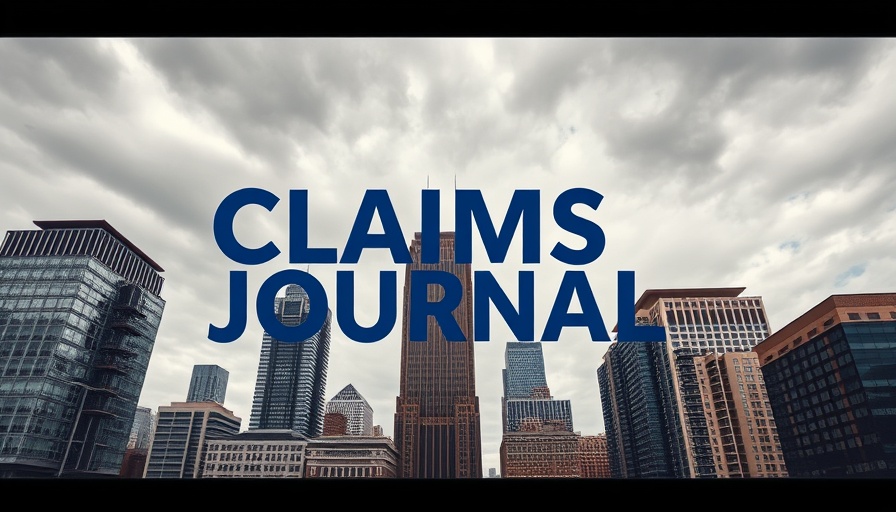
Understanding the Alabama Ruling: What It Means for Adjusters
The recent ruling by the Alabama Tax Tribunal regarding remote-working adjuster Candace Corley has brought to light important implications for insurance adjusters across the nation. The tribunal found in favor of Corley, a resident of Florida, who argued that she should not be taxed by Alabama since her work, conducted for a Florida-based insurance company, did not involve transacting business within Alabama's jurisdiction. This pivotal decision not only reduces Corley’s tax burden but also raises critical questions about the future of remote work, tax liabilities, and the nature of business transactions in the insurance field.
Tax Implications for Remote Workers in the Insurance Industry
The case is particularly relevant as more professionals in the insurance industry embrace remote work. The dominant question is whether remote adjusters can avoid local tax obligations if their work is performed outside of the state where their employer is based. Industry experts suggest that this ruling may set a precedent, providing encouragement for others in similar situations. However, caution is warranted as tax laws vary widely and could prompt further scrutiny from regulatory bodies.
A Look at the Claims Process: What Affected Parties Should Know
For vehicle owners dealing with accident-related property damage, this decision serves as a reminder of the complexities involved in the insurance claim process. It highlights the importance of understanding where you and your insurance company stand in terms of jurisdiction and taxes. Adjusters, especially those working remotely, must be vigilant when reporting their work jurisdictions to avoid complications with tax authorities. As they navigate the nuances of filing an insurance claim, it's essential for policyholders to take charge of their claims timeline, knowing the right information could safeguard them from financial obligations incorrectly placed upon them.
The Risks of Miscommunicating Information
Corley’s testimony underscores a risk that can affect any claims process: miscommunication. Adjusters often juggle multiple clients and cases, and such errors can lead to denied insurance claims or unwarranted tax impositions. It's crucial to ensure that all parties maintain clarity and accuracy in their dealings, particularly during video testimony or when signing documents. This incident serves as a reminder to policyholders to keep detailed records of communication with their adjusters, as this documentation can play a key role when discrepancies arise.
Industry Response and Future Regulatory Trends
The ruling has garnered attention from industry leaders who express concern over potential ambiguities that it introduces. Questions linger regarding Slide Insurance, the company in question, which did not have the necessary licensing at the time of Corley’s employment with them. As this sector continues to adapt to an increasingly remote workforce, it may prompt state officials to refine legislation surrounding remote work contracts and licensing requirements to avoid future complications.
What Vehicle Owners Should Keep in Mind
For those navigating car accident claims or property damage assessments, understanding the implications of remote work cases like this one can be crucial. When filing an insurance claim, vehicle owners need to be aware of their rights regarding how their adjuster's employment affects their claim. They should be prepared to actively engage with their adjusters to clarify any questions and ensure their claims are processed efficiently.
The Alabama Tax Tribunal’s decision serves as a pivotal reminder in the evolving landscape of remote work. As more professionals operate outside traditional offices, clarity in jurisdiction and regulatory compliance becomes essential. Vehicle owners and adjusters alike can learn from Corley’s experience. It’s not only about understanding the claims timeline but also standing firm on ensuring that every aspect of the professional relationship is transparent and documented. This vigilance could mean the difference between simple claim processing and navigating the dire waters of denied claims and misallocated tax burdens.
Final Thoughts: Take Control of Your Claims Process
The tax implications of this case remind us of the importance of acknowledging our rights as consumers, especially during the insurance claim process. If you're an accident victim dealing with property damage claims, now's the time to become proactive. Remember to document everything related to your claim and clarify any doubts with your adjuster. Together, we can ensure that the future of remote work in the insurance industry is built on transparency and mutual understanding.
 Add Row
Add Row  Add
Add 




Write A Comment